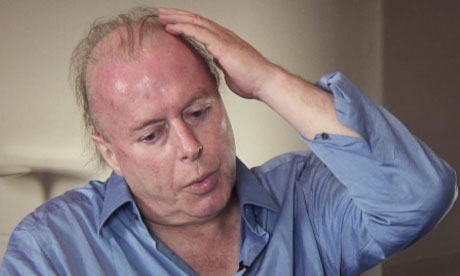
The Hitch is still fighting despite cancer
Christopher Hitchens, witnessing the Portugal 1974 revolution:
It was the last fall of the curtain on the last act of the 1968 style, with its “take your desire for reality” wall posters and its concepts of work as play. For me it was also the end of the line with my old groupuscule. I had developed other disagreements, too, as the old and open-minded “International Socialists” began to mutate into a more party line sect. But Portugal had broken the mainspring for me, because it had caused me to understand that I thought democracy and pluralism were good things in themselves, and ends in themselves at that, rather than means to another end….
… Conor Cruise O’Brien had phrased it better than I could then hope to do:
“Are you a socialist?” asked the African leader. I said, yes.
He looked me in the eye. “People have been telling me,” he said lightly, “that you are a liberal…”
The statement in its context invited a denial. I said nothing.
And yet, as I drove home from my interview with the leader, I had to realise that a liberal, incurably, was what I was. Whatever I might argue, I was more profoundly attached to liberal concepts of freedom – freedom of speech and of the press, academic freedom, independent judgment and independent judges – than I was to the idea of a disciplined party mobilising all the forces of society for the creation of a social order guaranteeing more real freedom for all instead of just a few. The revolutionary idea struck me as being more immediately relevant for most of humanity than were the liberal concepts. But it was the liberal concepts and their long term importance – though not the name of liberal – that held my allegiance.
George Galloway during a furious debate about the Iraq war, in 2005, famously called Hitchens “a drink-soaked former Trotskyite popinjay” (link). Drinked soaked, yes by his own admission, but a Trotskyite, not for long. Hitchens flirtation with the IS (International Socialists) may have served to prejudice him against Mao (how uncontrarian for such a contrarian to be against the Cultural Revolution without any analysis whatsover) but his far deeper attachment to freedom enabled him to break from the Trotskyite inclination of sabotaging united fronts. So he ended up supporting the liberation of Iraq (which required a very broad united front) and modernity in general. Hitchens is the iconic modern man. His warts and all bio, Hitch-22, is a mixed bag but contains some wonderful anecdotes and analytical gems.

Recent Comments